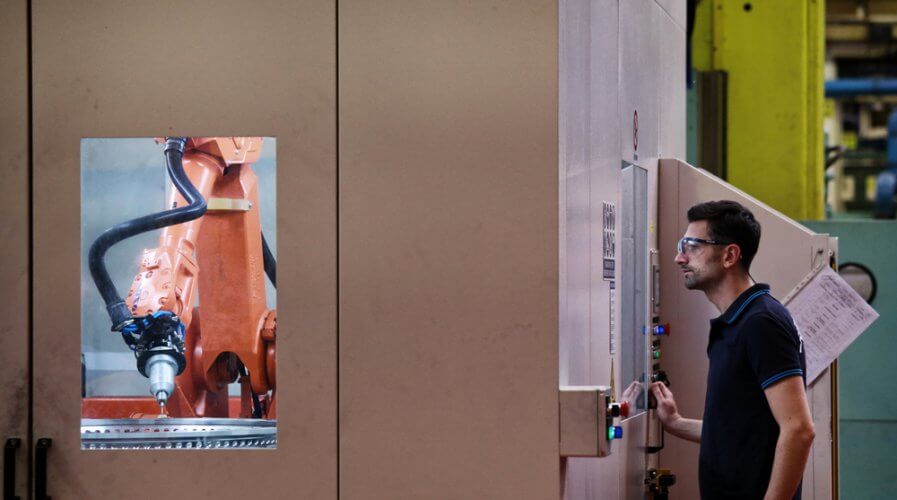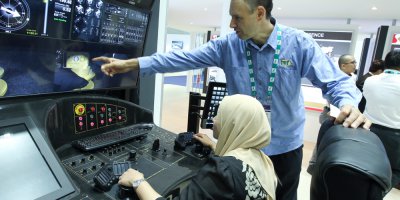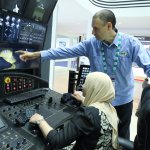
Tomorrow’s intelligent devices open up a world of possibilities. Source: Shutterstock
Capturing the UN’s thoughts on the future of AI and robotics
WHILE businesses are still exploring the potential of artificial intelligence (AI) and its impact on the digital and physical world around us, a few experts are sure that it will disrupt and transform everything.
One of those experts is United Nations Interregional Crime and Justice Research Institute (UNICRI) Head of Centre for Artificial Intelligence and Robotics Irakli Beridze who will be speaking at the Interpol World Summit in Singapore this week.
Ahead of his presentation, Beridze caught up with Tech Wire Asia to share some glimpses of the future and what businesses could expect in the coming months.
“[AI and robotics] are powerful technologies. To quote the United Nations Secretary-General António Guterres, they can “turbocharge” progress toward the Sustainable Development Goals, making a better world for our people and our planet.”
Beridze shared a few examples from his work in the UN where the agencies hope that AI will be able to help identify and report child abuse material images, spot patterns in financial data that may indicate the presence of human trafficking networks, and monitor payments for irregularities that might indicate fraud or corruption.
“The technology is there and it will have far-reaching effects. It is just up to us to try to balance the positive and negative effects as much as possible to make the most of it.”
Losing jobs isn’t a big risk, but cybersecurity might be
In the world of business, employees and managers are often concerned about the fact that AI and robotics will not only automate tasks but take away jobs — creating challenges not just for the workforce but also the economy.
However, the reality isn’t as grim according to the UN Chief.
“The fact that many different types of digital and physical applications will automate a vast diversity of jobs in the coming years does not mean that humans will be left out of the equation.”
While Beridze argues that the reason machines are being used is to automate so that humans can benefit from the time saved, he does agree that the problem with this set-up is that we do not yet have a safety net to catch the suddenly unemployed workers of the future.
“This is why it is crucial for us all to begin rethinking our infrastructure as it relates to the future of work.”
Of course, many of the people who become unemployed can be employed in other areas (such as care for the elderly, education, and so on) where workforces may be understaffed — but that’s something organizations need to think about consciously and in advance of the chaos that ensues the first wave of lost jobs.
Although the future of AI and robotics is exciting, it does also create significant challenges for businesses. In Beridze’s opinion, cybersecurity is one area where AI and robotics might be a cause for concern.
“Just imagine a classic cyber-attack on a secure system. The person or persons behind the attack need to be remotely connected somewhere to be able to carry out the attack. They need time to prepare and launch the attack.
“At the same time, an attack is not something that is simply done with the ‘click’ of a button, it is an ongoing series of interactions between the attacker and system being attacked, the attacker needs to think and adapt according to the challenges or defenses they meet. They also need to sleep and eat.”
However, Beridze points out that an AI system designed to carry out the same attack can do all this without needing to take a break or even time to think.
AI systems could also learn and adapt to the defenses in a more sophisticated manner than a human.
“Speed and adaptation are definitely the key points when it comes to how AI will transform cybercrime,” explained Beridze.
In the future, while job losses might be a big concern and retraining and repositioning staff for future human resource needs require urgent thought, businesses also need to understand that AI and robotics will create more opportunities for everyone — so maintaining a positive outlook is key to leveraging technology for long-term success.
READ MORE
- Ethical AI: The renewed importance of safeguarding data and customer privacy in Generative AI applications
- How Japan balances AI-driven opportunities with cybersecurity needs
- Deploying SASE: Benchmarking your approach
- Insurance everywhere all at once: the digital transformation of the APAC insurance industry
- Google parent Alphabet eyes HubSpot: A potential acquisition shaping the future of CRM






